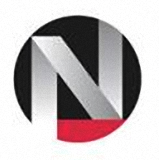What is Health Information Technology?
Think about the number of people who walk into a hospital, physician’s office, or healthcare clinic every single day. It’s a staggering figure. In fact, according to a survey conducted by the Centers for Disease Control (CDC), Americans turned in more than 922 million physician’s office visits and nearly 126 million hospital outpatient visits in one year alone.
Now consider this: For every one of those visits, and every single patient being treated, there are healthcare records that must be prepared, updated, and organized.
Fortunately, with the advances in technology that have happened over the past decade, the procedures for maintaining the dizzying amount of healthcare records have been moved to computer systems, greatly streamlining and simplifying the process. At the same time, it takes healthcare professionals who bring specialized training and skill sets to be able to effectively and efficiently utilize the technology that drives and supports electronic medical records.
Enter the field of health information technology.
The Field
Health information technology brings together two professional fields that are dynamic and have seen rapid growth in recent years—medical coding and health information management. As a result, to succeed in the field takes a well-rounded education and training in order to apply knowledge and skills in information technology specifically to the needs of healthcare organizations.
Health information technicians are skilled and trained to work within the components of modern Electronic Health Record (EHR) systems, and must have a deep understanding of the official coding rules, guidelines, and classifications systems for assigning valid diagnostic codes.
They apply their knowledge of data, statistics, and code in a way that impacts the efficiency of record keeping specific to healthcare settings, and work to ensure capabilities for the secure exchange of health information between medical providers, patients, and insurance companies.
But there are a number of skills, besides technology, that often makes the difference between successful health information technicians and those who aren’t able to advance in the field. Some of these skills include communication, organization, leadership, team building, medical terminology, active listening, critical thinking, reading comprehension, and the ethics involved with working in the healthcare industry.
Visit any healthcare setting, whether it be a major hospital or private clinic, and it will become very clear, very quickly, that the quality of care provided is directly impacted by how effectively the group works as a team. Health information technicians are an integral part of that team.
The Settings
You’ll find health information technicians working in a variety of healthcare settings. Anywhere there are patient records, there is a need for accurate, accessible, and secure electronic information. According to the most recent statistics from the U.S. Department of Labor, Bureau of Labor statistics, 38 percent of health information technicians work in hospitals; 21 percent work in physician’s offices; 7 percent work in nursing care facilities and nursing homes; 6 percent work in administrative and support services; and 5 percent work in professional, scientific, and technical services.
The work of health information technicians in these settings is crucial. Some tasks include coding and categorizing patient information for insurance reimbursement. Discussing patient information with other healthcare and finance professionals, to accurately maintaining the medical records and treatment histories of patients. The role of the health information technicians is often the lifeblood of a healthcare organization.
The Future
The field of health information technology is expected to undergo significant growth in the coming years. Fueled by rapid innovations in digital technology and the new possibilities it presents for electronic health records, the demand for smart, skilled, well-trained health information technicians is projected to continue rising.
According to ONet Online, the demand for health information technicians in the state of Illinois is expected to grow by 10 percent between 2014 and 2024.
The prospects who are best positioned to take advantage of the exceptional growth in this professional field are those who have undergone education and training in a program at a quality institution. Not only will a degree in healthcare information technology provide the essential knowledge and technical skills it takes to succeed at the professional level, but in many cases it will also offer students valuable connections within the industry that may lead to future employment.
Students who are interested in pursuing their education in health information technology should explore their options and make the most informed decision possible before choosing the best program and school for them. Specifically:
- Find a program that’s accredited; this ensures a level of academic quality that’s acknowledged by employers within the industry.
- Look for a program that offers abundant hands-on training and, ideally, an internship or externship experience.
- Look into the program’s faculty and make sure they bring real-world experience working within the industry.
- Examine the facilities to see what kind of learning resources and technology are available so you know you’ll be working with similar equipment you’ll encounter in the professional workplace.
 Northwestern College’s Health Information Technology Program
Northwestern College’s Health Information Technology Program
Established in 1902, Northwestern College has a rich history of serving students in the greater Chicago area who are looking for a quality education and training that’s focused and comprehensive. With programs in healthcare and business, Northwestern College offers accredited programs and is founded on the mission of meeting the distinct needs of each individual student who walks through its doors.
The Health Information Technology program at Northwestern College has been designed to offer students a well-rounded educational and training experience that will help prepare them to succeed on day one of their new career in the field.
The program’s curriculum has been shaped to mirror the demands and requirements of today’s health information technicians, delivering instruction and training in the most current and relevant subject areas. Some of the courses in the program include:
- Coding and Classification Systems—a study of the official coding rules, guidelines, and classification systems for assigning valid diagnostic and procedure codes
- Health Information Supervision, Financial and Resource Management—covering the principles of organization and supervision relevant to operating a health information department
- Information Systems in Healthcare—an introduction to the components of Electronic Health Record systems and how they support safe and effective care
A key aspect of Northwestern College’s Health Information Technology program, in addition to its quality, is the convenience it affords students. Along with being conveniently offered at the Oak Lawn location, day classes and online course options are available.
Students also benefit from the many industry connections that program faculty and administrators have with the healthcare industry in the Chicago area. Northwestern College works hand in hand with seasoned practicing professionals and various educators to keep the curriculum current and relevant. Students also complete a professional practice experience as part of their program. As a result, they not only have opportunities to apply what they’ve learned in real, meaningful office settings that utilize health information, but they’re able to start building their professional network for after graduation.
The program typically is completed in two years for those attending full time. Upon completion of the program, students will have gained skills in:
- Medical terminology
- Anatomy and physiology
- Pathophysiology and pharmacology
- Health data management
- Healthcare statistics
- Health information legal and ethical issues
- Organization management
- Clinical quality assessment and performance improvement
And graduates of the Northwestern College program in Health Information Technology will have gained extensive experience working with the kind of modern technology, equipment, and resources that they’ll be expected to use in their full-time position once hired.
A Powerful Combination
The strong growth being projected for the field of health information technology, along with the high-quality program and instruction from seasoned professionals offered at Northwestern College, makes the combination of the two a very powerful path ahead for students looking for a career in the healthcare arena. The associate of applied science program is a popular option for those already working in healthcare in some capacity and are looking to advance their career, or for those coming from outside of healthcare who want to change professions altogether.

